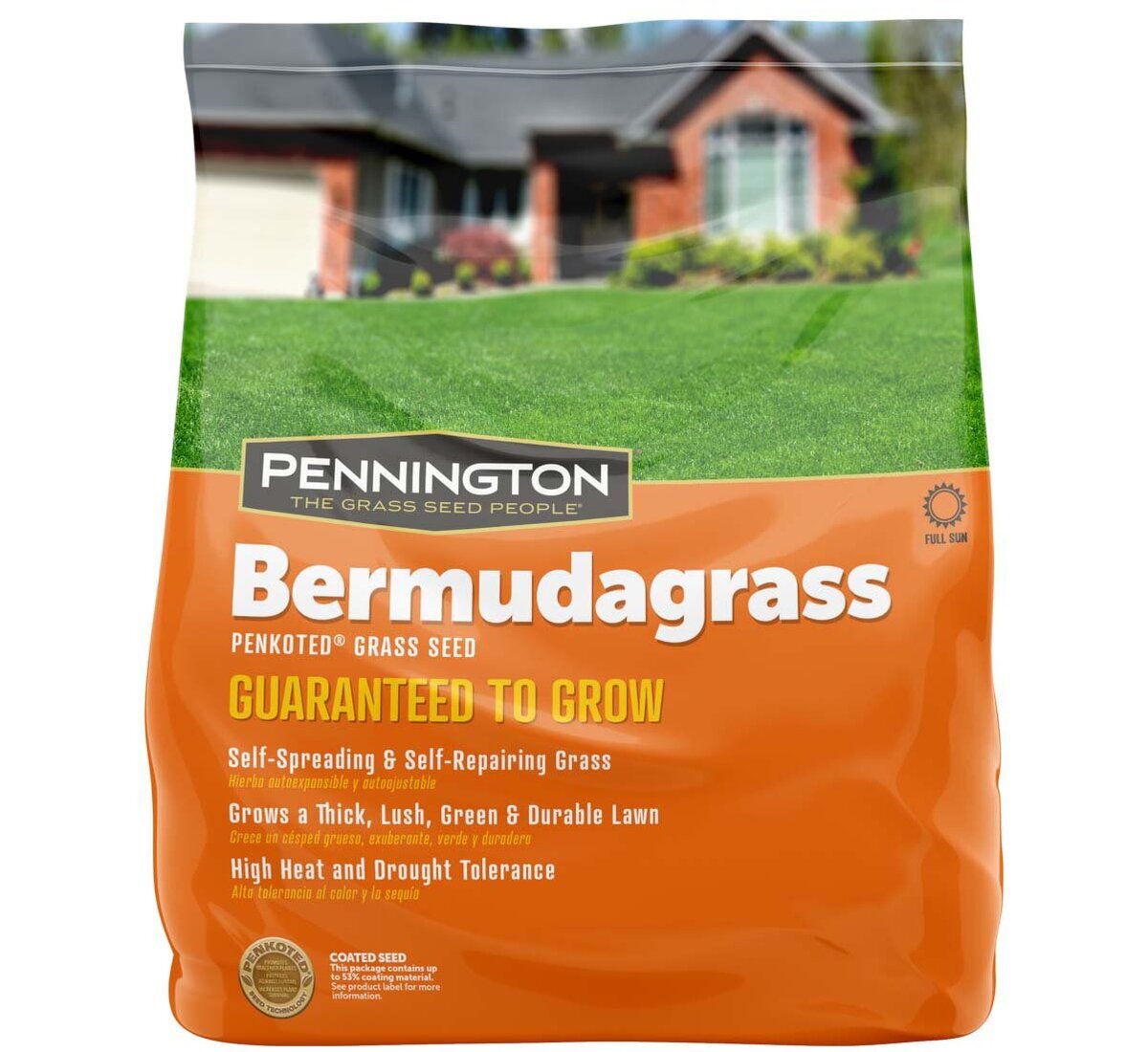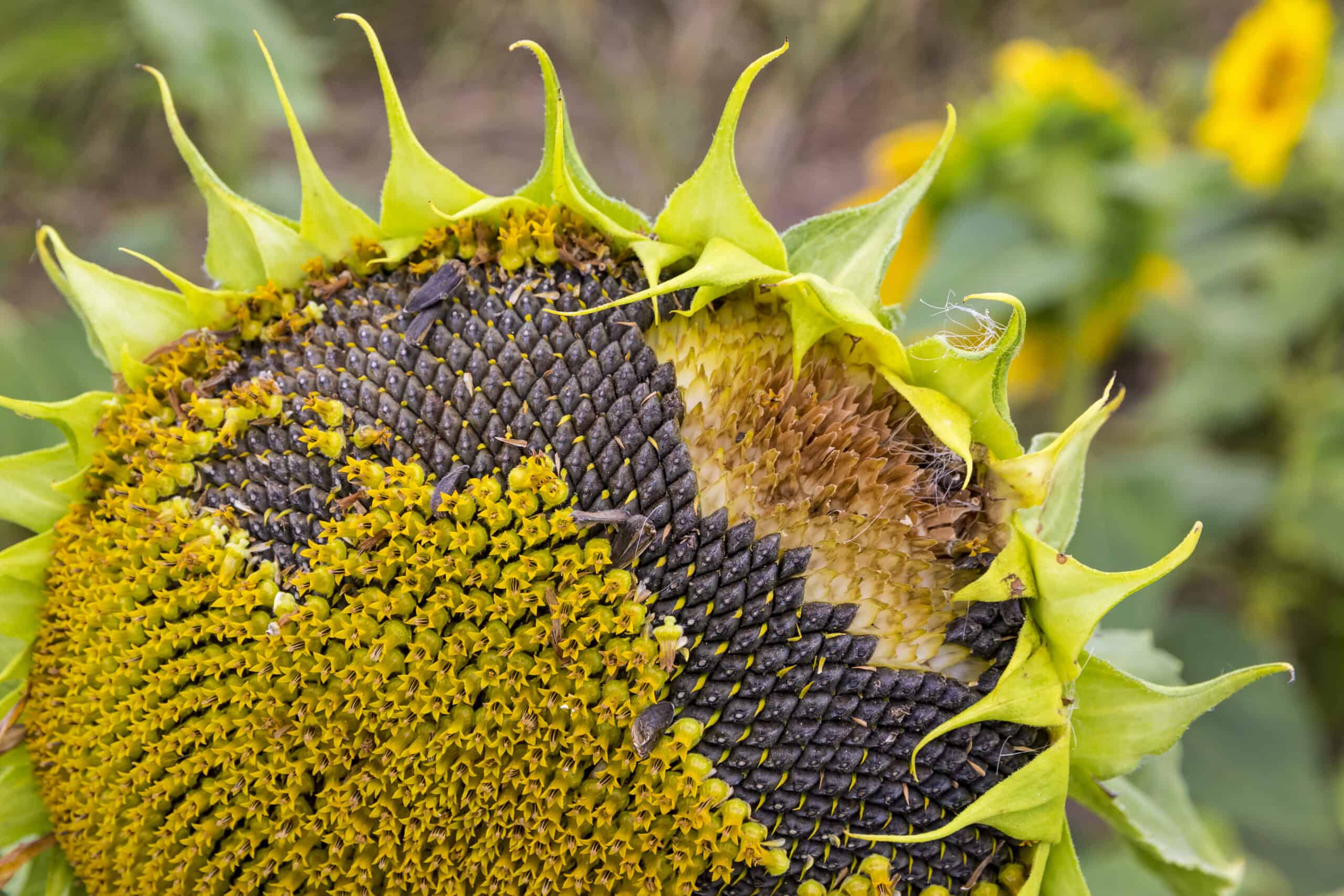Home>Gardening Tips and Tricks>Problem Solving>How To Get Weeds Out Of Bermuda Grass


Problem Solving
How To Get Weeds Out Of Bermuda Grass
Modified: January 22, 2024
Learn effective ways to solve the problem of weeds in Bermuda grass with our expert tips and proven techniques. Say goodbye to unwanted weeds and enjoy a lush, healthy lawn.
(Many of the links in this article redirect to a specific reviewed product. Your purchase of these products through affiliate links helps to generate commission for Chicagolandgardening.com, at no extra cost. Learn more)
Table of Contents
**
Introduction
**
Maintaining a lush, vibrant Bermuda grass lawn can be a source of pride for any homeowner. However, the presence of weeds can quickly mar the beauty of this resilient grass variety. In this comprehensive guide, we will explore effective strategies for eradicating weeds from Bermuda grass, ensuring that your lawn remains a picturesque expanse of greenery.
Weeds are the bane of any gardener's existence, and when they infiltrate Bermuda grass, they can be particularly stubborn and unsightly. Fortunately, with the right knowledge and techniques, you can effectively combat these intruders and restore your lawn to its former glory.
Throughout this article, we will delve into the nuances of Bermuda grass care, the identification of common weeds that plague this grass type, and the most efficient methods for their removal. Whether you are contending with dandelions, crabgrass, or clover, this guide will equip you with the tools to combat these unwelcome guests and reclaim your Bermuda grass lawn.
Join us as we embark on a journey to understand Bermuda grass and learn how to eliminate weeds, ensuring that your lawn remains a pristine oasis of natural beauty.
Understanding Bermuda Grass
Before delving into the specifics of weed removal, it is essential to comprehend the unique characteristics of Bermuda grass. This warm-season grass variety is renowned for its exceptional durability and resilience, making it a popular choice for lawns, golf courses, and athletic fields.
Bermuda grass thrives in regions with ample sunlight and exhibits remarkable tolerance to heat and drought. Its rapid growth and aggressive spreading nature enable it to form thick, lush lawns that can withstand heavy foot traffic and recover swiftly from environmental stress.
One of the key attributes of Bermuda grass is its dense, intertwined root system, which contributes to its robust nature. This grass type can quickly establish itself in various soil types, ranging from sandy to clay-based, further enhancing its adaptability.
When it comes to weed management, understanding the growth patterns and characteristics of Bermuda grass is pivotal. Its vigorous growth and ability to form a dense turf provide a natural defense against weed encroachment. However, when weeds do infiltrate Bermuda grass, they can be particularly challenging to eradicate due to the grass’s resilient nature.
By gaining insight into the growth habits and resilience of Bermuda grass, you can develop a targeted approach to weed control that leverages the inherent strengths of this grass variety. Armed with this knowledge, you will be better equipped to tackle weed infestations and maintain a thriving Bermuda grass lawn.
Identifying Common Weeds in Bermuda Grass
Recognizing the various weeds that commonly infiltrate Bermuda grass is the first step in effectively managing their presence. Among the most prevalent weeds in Bermuda grass lawns are:
- Crabgrass: This annual weed is a persistent intruder in Bermuda grass, characterized by its low-growing, spreading nature and coarse texture.
- Dandelion: Easily recognizable by its bright yellow flowers and distinctive, deeply toothed leaves, dandelions can quickly populate a Bermuda grass lawn if left unchecked.
- Clover: With its trifoliate leaves and white or pinkish flowers, clover is a common invader of Bermuda grass lawns, often thriving in nitrogen-deficient soil.
- Nutsedge: This aggressive perennial weed can infiltrate Bermuda grass with its triangular stems and yellow or purple-tinged flowers, posing a persistent challenge to eradication.
- Broadleaf Weeds: Including an array of weed species such as chickweed, plantain, and spurge, broadleaf weeds can detract from the visual appeal of Bermuda grass lawns and compete for essential nutrients.
Each type of weed presents its own set of challenges, and identifying them accurately is crucial for implementing targeted removal strategies. By familiarizing yourself with these common intruders, you can effectively discern them from the surrounding Bermuda grass, facilitating their prompt and precise eradication.
Understanding the growth habits, root systems, and distinctive features of these weeds will enable you to tailor your weed control efforts to address each specific threat effectively. Armed with this knowledge, you can embark on a proactive approach to weed management, safeguarding the health and beauty of your Bermuda grass lawn.
Manual Weed Removal Methods
Employing manual weed removal techniques is a fundamental aspect of maintaining a weed-free Bermuda grass lawn. While it may be labor-intensive, manual removal offers a targeted and environmentally friendly approach to eradicating weeds without the use of chemicals. Here are several effective methods for manually removing weeds from Bermuda grass:
- Hand Pulling: For isolated weeds or small patches, hand pulling can be an efficient method. Grasp the weed at its base and gently but firmly pull upward, ensuring that the entire root system is extracted to prevent regrowth.
- Weed Puller Tools: Utilizing specialized weed puller tools can streamline the removal process, particularly for weeds with deep taproots or extensive rhizomes. These tools provide leverage and precision, minimizing strain on the hands and back.
- Dethatching: Thatch buildup in Bermuda grass can create an ideal environment for weed growth. Regular dethatching using a dethatching rake or power dethatcher can help eliminate the organic layer where weeds take root, reducing their prevalence.
- Overseeding: Introducing new Bermuda grass seed to thin or bare areas can help smother out weeds by promoting dense turf growth. This method effectively competes with weeds for space and resources, gradually reducing their presence.
By incorporating these manual weed removal methods into your lawn care regimen, you can effectively combat weeds while promoting the health and vigor of your Bermuda grass. Furthermore, manual removal allows for targeted intervention, minimizing the impact on the surrounding environment and beneficial flora and fauna.
While manual weed removal requires diligence and perseverance, the rewards are a thriving, weed-free lawn that showcases the natural beauty of Bermuda grass.
Chemical Weed Control for Bermuda Grass
When faced with extensive weed infestations or persistent intruders, chemical weed control can offer an effective solution for managing weeds in Bermuda grass lawns. It is essential to approach chemical weed control with caution, adhering to proper application techniques and safety measures to safeguard the health of your Bermuda grass and minimize environmental impact.
Selective herbicides formulated specifically for Bermuda grass can target weeds while preserving the integrity of the grass. These herbicides are designed to eliminate broadleaf weeds, sedges, and other undesirable plants without harming Bermuda grass when applied according to the manufacturer’s instructions.
Pre-emergent herbicides can be instrumental in preventing weed growth by inhibiting seed germination, effectively thwarting weed establishment before it begins. Post-emergent herbicides, on the other hand, target existing weeds, eradicating them to prevent further proliferation.
It is crucial to carefully read and follow the label instructions when using herbicides, ensuring proper dilution, application rates, and timing. Additionally, consider factors such as weather conditions and the presence of desirable plants in the vicinity to minimize unintended effects.
While chemical weed control can be an expedient method for addressing widespread weed issues, it is essential to exercise restraint and judiciousness to maintain the health and resilience of your Bermuda grass. When used responsibly and in conjunction with other weed management practices, chemical control can contribute to a thriving, weed-free lawn.
Consulting with a lawn care professional or extension service can provide valuable guidance on selecting the most suitable herbicides and devising a comprehensive weed control strategy tailored to your specific lawn conditions and weed species.
Preventing Weed Growth in Bermuda Grass
Implementing proactive measures to prevent weed growth is integral to maintaining a healthy and vibrant Bermuda grass lawn. By addressing underlying factors that contribute to weed proliferation, you can fortify your lawn against invasive plants and minimize the need for extensive weed control interventions. Here are key strategies for preventing weed growth in Bermuda grass:
- Optimal Lawn Care Practices: Regular mowing, appropriate irrigation, and proper fertilization are essential components of Bermuda grass care. Maintaining the recommended mowing height and adhering to a consistent watering and fertilization schedule can promote vigorous grass growth, creating an environment that is less conducive to weed establishment.
- Soil Health Management: Conducting soil tests and amending the soil as needed to optimize its pH and nutrient levels can bolster the vitality of Bermuda grass, enabling it to outcompete weeds more effectively. Aerating the soil to alleviate compaction and improve drainage can further enhance the grass’s resilience.
- Thickening the Turf: Encouraging dense turf growth through overseeding and promoting lateral spread can diminish opportunities for weed encroachment. A robust Bermuda grass lawn with ample coverage leaves little room for weeds to take hold, effectively stifling their growth.
- Weed Barrier Installation: Installing physical barriers, such as landscape fabric or mulch, around flower beds and garden borders can prevent weed seeds from germinating and infiltrating the Bermuda grass lawn. This proactive measure can significantly reduce the influx of weeds into the lawn area.
By integrating these preventive strategies into your lawn maintenance routine, you can create an environment that is inhospitable to weeds while fostering the optimal growth of Bermuda grass. Proactive weed prevention not only minimizes the need for extensive weed control measures but also promotes the long-term health and beauty of your lawn.
Conclusion
Embarking on the journey to eliminate weeds from Bermuda grass is a testament to your commitment to maintaining a pristine and flourishing lawn. By understanding the unique characteristics of Bermuda grass and the common weeds that encroach upon it, you have gained valuable insights into the intricacies of weed management. Whether contending with crabgrass, dandelions, clover, or other persistent intruders, you are now equipped with a diverse array of strategies to combat their presence effectively.
From manual weed removal methods that offer targeted intervention to chemical weed control measures that demand judicious application, you have explored a spectrum of approaches tailored to the specific needs of your Bermuda grass lawn. Furthermore, by adopting preventive measures to fortify your lawn against weed growth, you are laying the foundation for long-term success in weed management.
As you navigate the realm of Bermuda grass care and weed control, remember that diligence, patience, and a deep understanding of your lawn’s unique dynamics are paramount. Embracing a holistic approach that encompasses optimal lawn care practices, soil health management, and proactive weed prevention will position you for sustained success in maintaining a resilient, weed-free Bermuda grass lawn.
Armed with the knowledge and strategies outlined in this guide, you are poised to reclaim the natural splendor of your Bermuda grass lawn, ensuring that it remains an inviting expanse of lush greenery for years to come.


